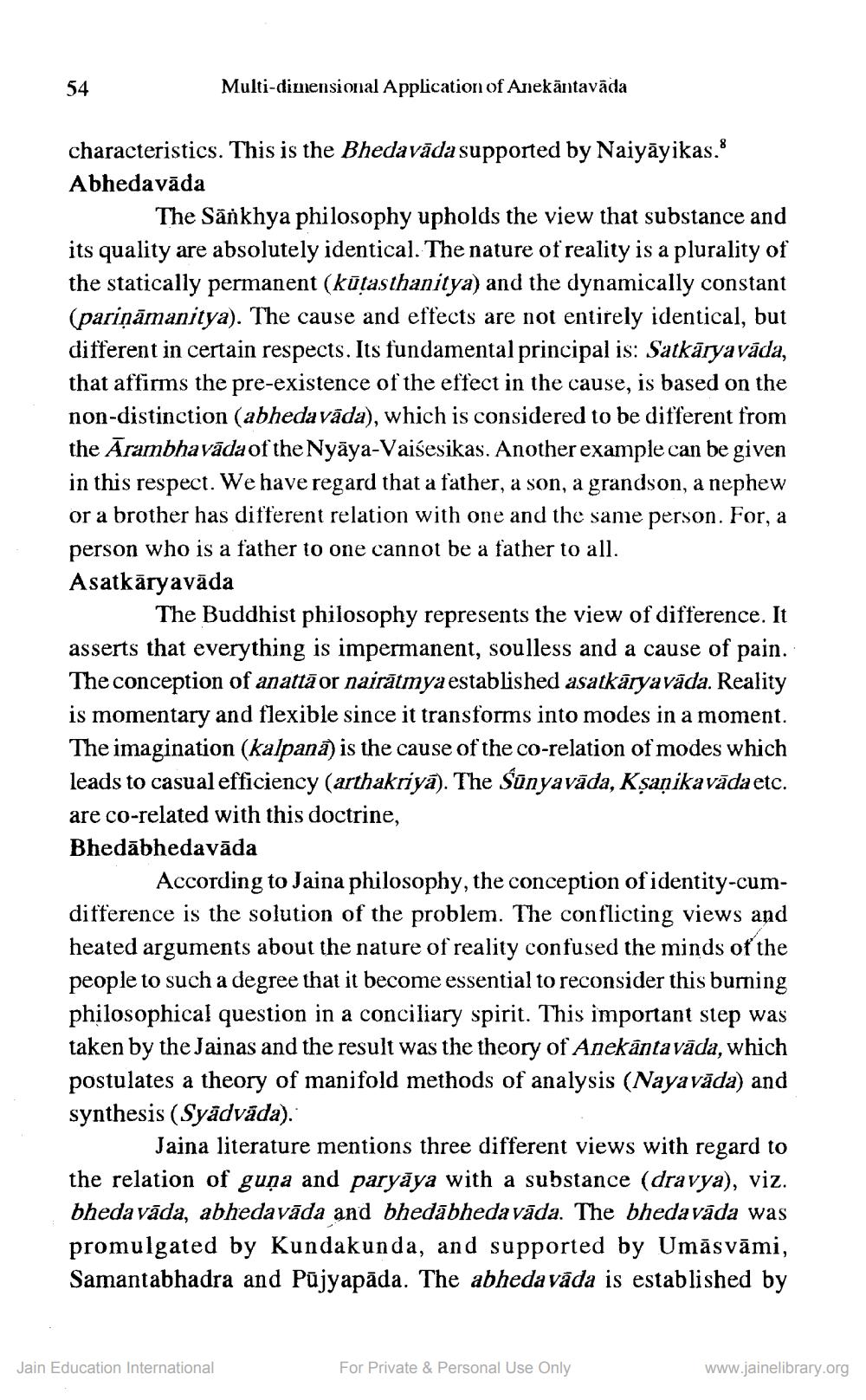________________
54
Multi-dimensional Application of Anekāntavāda
characteristics. This is the Bhedavāda supported by Naiyāyikas.8 Abhedavāda
The Sānkhya philosophy upholds the view that substance and its quality are absolutely identical. The nature of reality is a plurality of the statically permanent (kūtasthanitya) and the dynamically constant (pariņāmanitya). The cause and effects are not entirely identical, but different in certain respects. Its fundamental principal is: Satkāryavāda, that affirms the pre-existence of the effect in the cause, is based on the non-distinction (abhedavāda), which is considered to be different from the Arambhavādaof the Nyāya-Vaišesikas. Another example can be given in this respect. We have regard that a father, a son, a grandson, a nephew or a brother has different relation with one and the same person. For, a person who is a father to one cannot be a father to all. Asatkāryavāda
The Buddhist philosophy represents the view of difference. It asserts that everything is impermanent, soulless and a cause of pain. The conception of anattā or nairātmya established asatkāryavāda. Reality is momentary and flexible since it transforms into modes in a moment. The imagination (kalpanā) is the cause of the co-relation of modes which leads to casual efficiency (arthakriya). The Sūnyavāda, Kșanikavāda etc. are co-related with this doctrine, Bhedābhedavāda
According to Jaina philosophy, the conception of identity-cumdifference is the solution of the problem. The conflicting views and heated arguments about the nature of reality confused the minds of the people to such a degree that it become essential to reconsider this burning philosophical question in a conciliary spirit. This important step was taken by the Jainas and the result was the theory of Anekantavāda, which postulates a theory of manifold methods of analysis (Nayavāda) and synthesis (Syådväda).
Jaina literature mentions three different views with regard to the relation of guna and paryāya with a substance (dravya), viz. bheda vāda, abhedavāda and bhedābheda vāda. The bhedavāda was promulgated by Kundakunda, and supported by Umāsvāmi, Samantabhadra and Pūjyapāda. The abhedavāda is established by
Jain Education International
For Private & Personal Use Only
www.jainelibrary.org




